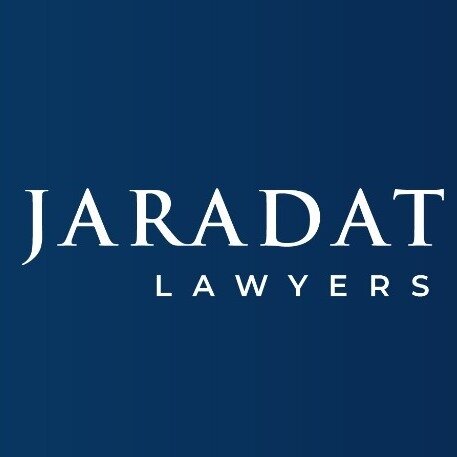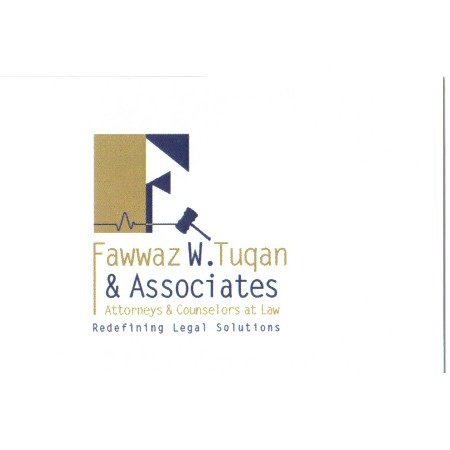Best Financial Services Regulation Lawyers in Amman
Share your needs with us, get contacted by law firms.
Free. Takes 2 min.
List of the best lawyers in Amman, Hashemite Kingdom of Jordan
About Financial Services Regulation Law in Amman, Hashemite Kingdom of Jordan
The financial services sector in the Hashemite Kingdom of Jordan, particularly in Amman, operates under a robust regulatory framework designed to protect consumers, maintain financial stability, and foster a trustworthy financial marketplace. This regulatory framework is overseen by the Central Bank of Jordan (CBJ), which issues licenses, oversees compliance, and enforces financial regulations. Key areas of regulation include banking services, securities markets, insurance companies, and non-bank financial institutions. The regulatory landscape is influenced by both local legislation and international standards to ensure that financial services in Amman remain competitive and secure.
Why You May Need a Lawyer
Individuals and businesses may require legal assistance in the field of Financial Services Regulation for a variety of reasons. These can include compliance with complex regulatory requirements, resolving disputes with financial institutions, handling allegations of financial misconduct, or assistance in navigating the licensing process. Additionally, legal experts can provide guidance on protecting consumer rights in the financial sector, advising on regulatory changes, and supporting legal compliance in case of mergers and acquisitions involving financial institutions.
Local Laws Overview
The financial services regulation in Amman is heavily influenced by local laws such as the Central Bank Law, the Banking Law, the Securities Law, and the Insurance Regulatory Law. Key aspects include the requirement for financial institutions to maintain certain capital adequacy ratios, the implementation of anti-money laundering measures, consumer protection regulations, and the necessity for transparency and disclosure in financial transactions. Furthermore, there are specific licensure requirements that financial institutions must meet to legally operate within Jordan, alongside periodic compliance audits conducted by the Central Bank of Jordan.
Frequently Asked Questions
What types of financial institutions are regulated in Jordan?
The Central Bank of Jordan regulates banks, insurance companies, credit institutions, securities firms, and financial intermediaries, among others.
What is the role of the Central Bank of Jordan?
The Central Bank of Jordan is responsible for maintaining monetary stability, overseeing the banking system, ensuring the safety of payment systems, and implementing financial services regulations.
How does one obtain a banking license in Jordan?
To obtain a banking license, an entity must meet specific capital and prudential requirements, submit an application to the Central Bank of Jordan, and undergo a stringent vetting and approval process.
Are there consumer protection laws for financial services in Jordan?
Yes, several consumer protection regulations are in place to safeguard consumer interests, including laws on transparency and fair treatment in financial transactions.
What are the penalties for non-compliance with financial regulations in Jordan?
Penalties can include fines, license suspension or revocation, and legal proceedings depending on the severity of the violation.
Can foreign banks operate in Jordan?
Yes, foreign banks can operate in Jordan, but they must obtain the necessary licenses and fulfill regulatory requirements similar to local institutions.
How are disputes between consumers and financial institutions handled?
Disputes are often resolved through mediation or arbitration by specialized financial dispute resolution centers, and legal recourse is available if needed.
What measures are in place to prevent money laundering in Jordan?
Jordan has implemented strict anti-money laundering laws, requiring financial institutions to conduct customer due diligence and report suspicious activities.
Are there any special regulations for Islamic banking in Jordan?
Yes, Islamic banks must comply with Shariah-compliant financial principles alongside standard regulatory requirements.
How does one report a financial institution's misconduct?
Misconduct can be reported directly to the regulatory body overseeing the institution, such as the Central Bank of Jordan or the Securities Commission.
Additional Resources
For more information or assistance, individuals may refer to the following resources:
- The Central Bank of Jordan: As the primary regulatory authority, they provide guidance and oversight for financial operations.
- The Jordan Securities Commission: They oversee the stock market and enforce securities regulations.
- Local legal firms specializing in Financial Services Regulation: They offer tailored legal advice and representation.
- The Jordan Insurance Federation: They can assist with insurance-related regulatory inquiries and issues.
Next Steps
If you require legal assistance in the field of Financial Services Regulation, consider following these steps:
- Consult with a local attorney who specializes in financial services law to understand what legal obligations and rights apply to your specific context.
- Gather all relevant documentation related to your financial issue or inquiry to present a clear case to your legal advisor.
- Engage with relevant regulatory bodies to seek guidance or clarify doubts regarding compliance and regulatory expectations.
- Keep up-to-date with changes in financial legislation that may affect your situation or business operations.
Lawzana helps you find the best lawyers and law firms in Amman through a curated and pre-screened list of qualified legal professionals. Our platform offers rankings and detailed profiles of attorneys and law firms, allowing you to compare based on practice areas, including Financial Services Regulation, experience, and client feedback.
Each profile includes a description of the firm's areas of practice, client reviews, team members and partners, year of establishment, spoken languages, office locations, contact information, social media presence, and any published articles or resources. Most firms on our platform speak English and are experienced in both local and international legal matters.
Get a quote from top-rated law firms in Amman, Hashemite Kingdom of Jordan — quickly, securely, and without unnecessary hassle.
Disclaimer:
The information provided on this page is for general informational purposes only and does not constitute legal advice. While we strive to ensure the accuracy and relevance of the content, legal information may change over time, and interpretations of the law can vary. You should always consult with a qualified legal professional for advice specific to your situation.
We disclaim all liability for actions taken or not taken based on the content of this page. If you believe any information is incorrect or outdated, please contact us, and we will review and update it where appropriate.

















